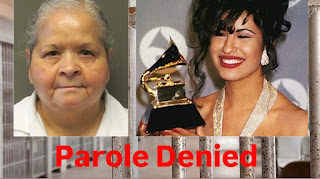Just Another Black Girl Without Her Father: What Ayesha Howard’s Child Support Case & Anthony Edwards’ Decision Say About the Future of High-Profile Custody Battles
NBA star Anthony Edwards is making headlines—not for his performance on the court, but for his legal battle off of it. The Minnesota Timberwolves star has reportedly requested that his child support case with Ayesha Howardremain private, a move that has sparked discussion about high-profile fatherhood, financial responsibility, and emotional absence.
What stands out even more? Edwards is not seeking custody or visitation of his daughter. While many were quick to react to rumors that he had paid an upfront lump sum of $1,080,000 to cover 18 years of support—an amount later debunked—the reality remains: he has chosen to fulfill his financial duty but not his parental one.
At just 23, Edwards is already a household name in the basketball world, known for his explosive talent and confidence on the court. But off the court, his personal life is making headlines for a different reason. He and Ayesha Howard, the mother of his child, are no longer together, and his decision to settle comes with a cold message: “Don’t ask me for anything for the next 18 years.”
For some, this move is being praised as responsible—he’s handling his financial obligation without any court battles or payment disputes. But for others, it highlights a deeper issue: another Black child growing up without a father’s presence. We’ve seen this story play out time and time again, and while financial security is crucial, it cannot replace the emotional and psychological impact of an absent parent.
The Price of Privacy
For celebrities, keeping personal matters out of the media is a constant struggle, and Edwards’ request for privacy is understandable. However, when it comes to parenting, the question remains—does the right to privacy extend to avoiding public accountability? In high-profile child support cases, we often see a father’s financial contribution scrutinized, while the emotional and developmental needs of the child take a backseat in public discourse.
Another Black Girl Without a Father
At the center of this isn’t just Anthony Edwards or Ayesha Howard, the child’s mother—it’s their daughter. Another Black girl growing up without her father’s active presence, a reality that has deep implications.
The absence of a father figure can have lasting effects on a child’s self-esteem, emotional well-being, and future relationships. While money can provide stability, it cannot replace presence, guidance, or love. The father-daughter bond is one of the first examples of love and support a young Black girl experiences, and when that is absent, it can shape her views on self-worth, relationships, and trust.
The age gap between Edwards and Howard also adds another layer to this conversation. She is several years older than him, and their relationship dynamic likely played a role in how things unfolded.
But regardless of how they got here, the real question remains: What does this decision mean for the future of high-profile child support cases? If more athletes or celebrities follow this route, what message does that send about fatherhood, responsibility, and the emotional needs of children?
With a growing number of young, wealthy athletes and entertainers fathering children, Edwards’ case raises questions about the future of high-profile child support cases. Will more men seek to settle their financial responsibilities upfront and remove themselves from the picture? And if so, what message does that send about fatherhood?
Final Thoughts
Anthony Edwards’ decision to request privacy and avoid seeking custody is a reminder of an ongoing conversation—when does financial support become a substitute for fatherhood? While his choice may be within his rights, it leaves us wondering about the little girl at the center of it all.
Money might secure her future, but will she ever know the man who gave it to her?








Comments
Post a Comment